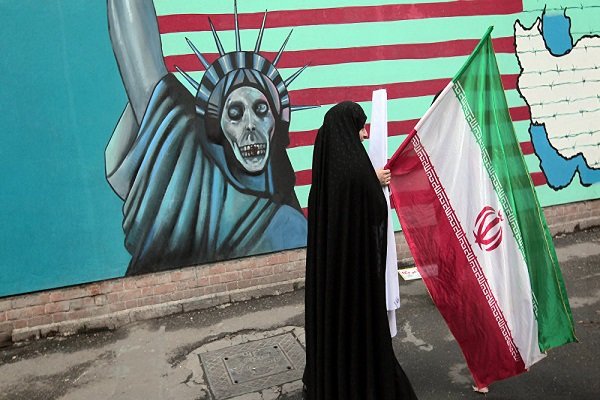It’s vital to know some facts about all this and try to analyze it and prognosticate what may or may not happen geopolitically, and the Tehran Times does as good a job of this as any newspaper I know.
As an American journo, one can say things in the Tehran Times, for example, that are not readily going to find a mainstream publisher in the US. One case in point was when, several years ago, I was writing paid opinion pieces in what used to be one of the top 10 newspapers in the US where I worked fulltime for a while in the 1970s – the Providence (Rhode Island) Journal. But like so many newspapers in the US today, the staff at the Journal is a third of what it used to be, and the paper has shrunk in terms of pages by two thirds, too. I had written a column there about the 19th century roots of Apartheid in South Africa after a visit to that country. Apartheid was in full force until Nelson Mandela was finally released from prison on Robbins Island and became President. In that prospective column I ended with some ideas about what soon became the JCPOA, and suggested that the US would do well to balance its treatment of Iran with that of Israel. This meant, of course, that uncritical support of the Zionists would have to fall by the wayside. However, the editor at the Journal refused to publish the column as if the comment about a more rational and fair Mideast foreign policy was “anti-Semitic”. This editor had never been to the Mideast and knew next to nothing about it. He was also allied with the Neocons like Bill Kristol and John Bolton and many others, presuming that whatever they thought was good enough. They did not support the JCPOA. I roundly criticized this editor and cut my ties to the Providence Journal, a mainstream regional paper in New England.
Iran is not the only country threatened by the US at least by sanctions and other measures aimed at preserving US hegemony of some sort. Look at China, for example, also threatened. Where the US has prioritized military interventions for decades, whether overt or covert, China, whose economy by some measures is now the largest in the world, has not. Trump as a campaigner in 2016 promised a very different foreign policy, one that would halt efforts to topple foreign governments, and the Chinese may have even worried about this potential change. Because if the US shifted its focus to its internal problems and pursued a benign foreign policy, it might prove to be a challenge to China’s rise to global power. Trump, however, did not change US foreign policies. In fact, he has made them much worse. Even if this lack of change has proven to be an irritant to China and worse for smaller countries like Iran, circumstances are bound to improve. Countries like China that focus their efforts on building and not bombing, or not on wars it cannot win, and not on economic sanctions, stand to win in the longer term. The US has been sowing the seeds of its own destruction but China has not and nor has Iran. (China in fact has not engaged in a foreign war since 1979 when it invaded Vietnam, and Vietnam fended off the Chinese and the Chinese soon withdrew from northern Vietnam.)
There may be a lesson in the Chinese example of waiting things out for smaller but equally important nations like Iran. But waiting for what? Well, for the US to fall apart eventually, and it will unless it changes course.
For one thing, a US economic crisis, another one that’s bound to be worse than the 2008-09 experience, is probably ahead. The US financial markets are beginning to telegraph that right now, and the country has rarely been so divided politically and socially. And the US increasingly has fewer allies, and none of moral standing in the Middle East. “Allies” Saudi Arabia and Israel are reviled around the world. Even the US dollar is at risk like never before. At some point China is going to insist, for one thing, that it won’t buy Saudi oil unless payment can be made in yuan. A farewell to the Petrodollar seems inevitable, however long it takes, and China is now the largest oil user and importer.
But patiently waiting for the US to implode in some substantive way must not be a merely passive exercise, but rather one where, despite the suffering and economic dislocations brought about by the US, Iran and other beleaguered countries seize difficult situations as opportunities to address internal issues, to promote further democratic representation and question policies that fail to address the needs and aspirations of all citizens, not just the current ruling elites. In the US the elites are making a mess of things and consequences are ahead.
When in time the current burdens of outside interferences fall away, that will have happened in part because leaders have been open minded and generous. This prescription may seem trite and too general even to mention, but to the extent that Iran, to cite just one example, gathers new friends and allies relatively while sloppy, repressive dictatorships like Saudi Arabia further lose influence and clout, as with the recent murders of journalist Jamal Khashoggi and many Yemenis, the payoffs will someday be enormous. As Sun Tzu, an ancient Chinese political and military strategist and philosopher was alleged to have said: If one waits patiently by the riverside, one’s enemies will eventually float by.
MNA/TT


























Your Comment